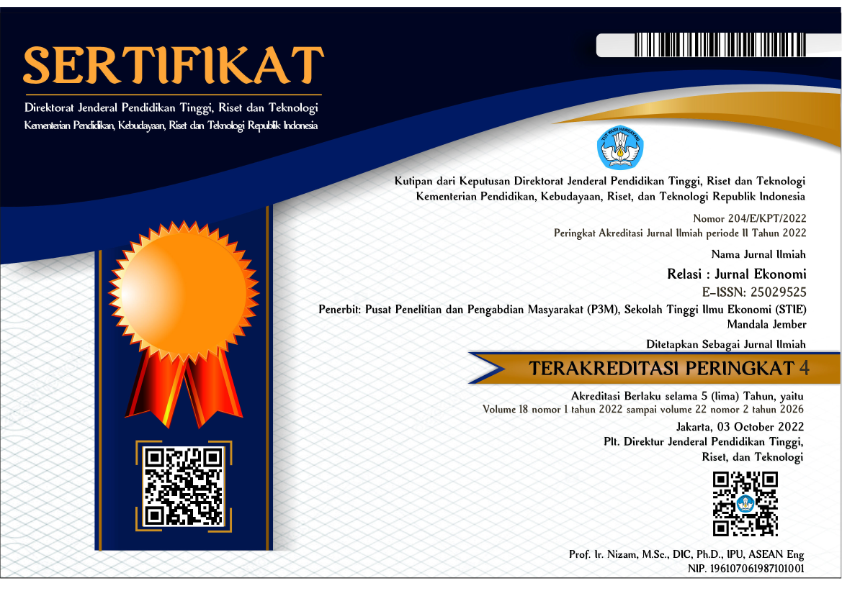Pengaruh Inflasi, Nilai Tukar, Dan Suku Bunga Terhadap Indeks Harga Saham Gabungan Di Bursa Efek Negara-Negara ASEAN
Abstract
The stock market of ASEAN at present has experienced various of development rapidly on one side, but on the other side also extremely vulnerable to influence various changes in macro economy, social, and political in the country and overseas. Macro economy conditions can influence composite stock price index. Indicators of macro economy are chosen in research is inflation, exchange rate, and interest rate. The three is part of the key variables of macro economy that can be used to see the activity of a country’s economy. This research analyzed the influence of third macro economy variables to composite stock price index in five ASEAN countries namely Indonesia, Malaysia, Singapore, Philippines, and Thailand were using analysis multiple linear regression with research’s periode January 2014 up to December 2016. Results showing that partially, only exchange rate which have significant effect on composite stock price index, while inflation and interest rate has no significant effect on composite stock price index. Simultaneously the inflation, exchange rate, and interest rate equally had a significant effect on the composite stock price index, but only able to explain as much as 19,1 %. This research is only use 3 economy variables. Further research is expected to add other variables considered more potential.
Copyright (c) 2020 RELASI : JURNAL EKONOMI

This work is licensed under a Creative Commons Attribution-NonCommercial-NoDerivatives 4.0 International License.





